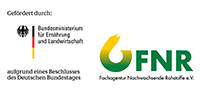Project aims
The TechPLAstic joint project is developing a flame-retardant PLA compound (PLA=polylactic acid) that can be used as an alternative to conventional plastics such as ABS (acrylonitrile butadiene styrene copolymers) or PC (polycarbonates) in technical injection-molded components. The project consortium, coordinated by Fraunhofer UMSICHT, is investigating and optimizing the relevant material weaknesses of PLA. The aim is to achieve a fire protection classification UL94-V0 with increased impact strength and a heat deflection temperature of over 100°C. At the same time, the injection molding process technology is also being tested. The aim is to find economically and technically viable solutions from both a material and process point of view. The close collaboration between industrial companies and research institutes guarantees the most practical development possible and the rapid transfer of results to industry.
 Fraunhofer Institute for Environmental, Safety and Energy Technology UMSICHT
Fraunhofer Institute for Environmental, Safety and Energy Technology UMSICHT